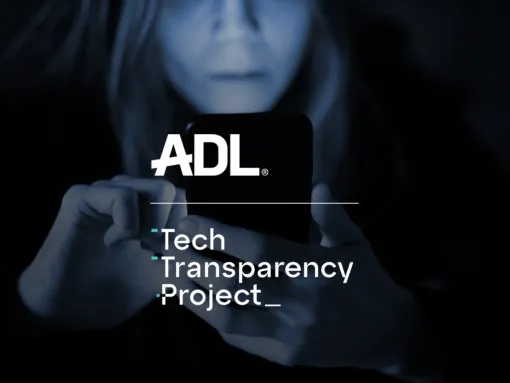JLens ran three successful proxy season campaigns with ADL that aimed to combat anti-Israel shareholder proposals and support efforts to protect kids online.
121 Results

We asked five of the main AI Chatbot platforms about topics related to antisemitism and their answers revealed concerning discrepancies.

Executive Summary Transparency reports of the largest social media platforms continue to be anything but transparent. New research from the ADL Center for Tech & Society (CTS) shows that most of these platforms only publish partial information about how much hate content they remove or action in some way. To make matters worse, these reports are often hard to locate, void of meaningful information, and only provide patchy insights into how platforms address hate, harassment,…

ADL Center for Tech and Society shows anonymous campus messaging apps like Yik Yak & Sidechat are failing to curb hatred triggered by the Israel-Hamas war.

ADL research shows ChatGPT misleads people seeking information about current events. This can be abused by bad actors & undermines trust.

Center for Tech & Society explains why access to platform data is important, how APIs work, and evaluates major platforms on their data accessibility.

Center for Tech & Society checklist maps platform policies, moderation standards, product features and user controls to address graphic violent content online.

ADL and TTP examine whether Facebook, Instagram, X, and YouTube are potentially facilitating hate group fundraising and merchandise sales.

ADL Center for Tech and Society found that users may avoid TikTok’s content moderation by posting images and that slurs can be accessed and posted as hashtags.

ADL Center for Tech and Society offers a social media explainer to help guide online and offline dialogue around the war in Gaza between Israel and Hamas.

An ADL survey found 70% of Americans had viewed misinformation about the war or hateful content directed towards Jews, Israelis, Muslims, Palestinians, or Arabs.

ADL Center for Tech and Society finds that antisemitic posts spiked 919% on X in the week after the October 7 Hamas attacks on Israel.

Generative AI is used to share misleading information and as a reason to cast doubt on content, polluting the information environment around the war in Israel.

ADL’s Center for Tech & Society finds social media companies are struggling to moderate online hate against Jews, Israelis, Palestinians, Arabs, and Muslims.

As Hamas terrorists threaten to livestream executions of Israeli hostages, ADL examines platforms' policies and recommends how they should moderate livestreaming of violent extremism.

An article about how misinformation spreads on a platform during a time of war and safeguards that the platform X should make to better address these issues,

ADL Center for Tech and Society outlines the crucial steps that online platforms should take immediately related to the war in Israel and Gaza.

ADL and TTP examines whether four major social media platforms are potentially profiting from ad placements alongside searches for hate groups and extremists.

Despite game companies having policies prohibiting hate, researchers easily found usernames in 5 categories of hate across 5 popular online multiplayer games.

Threads raises concerns similar to other Meta platforms on user safety, policies on hate, harassment, and extremism, transparency, and election integrity.









